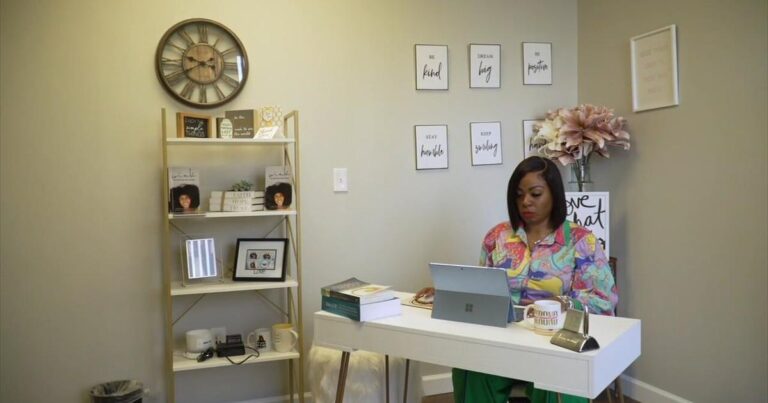In light of the recent World Mental Health Day on October 10, it is important to address the state of mental health, particularly within the Black community.
Sadly, in 2020, suicide became the third leading cause of death among African Americans ages 15 to 24, according to the U.S. Department of Health and Human Services. However, mental health remains a largely taboo subject within black communities. Cherlette McCullough, a licensed therapist at Center Peace Couples and Family Therapy, LLC, works diligently to break this stigma.
McCullough says, “There’s this dichotomy that ‘if I don’t have mental illness, I’m mentally healthy,’ and that’s just not true.
This misconception is widespread and within the black community, discussions about mental health are rare. Studies reveal that only about 25% of black individuals seek advice, compared to 40% of their white counterparts. McCullough shares, “In our community, mental health is overlooked because it’s one of those things you can’t touch, you can only feel it. Often when we can’t see these things, like a scar or a cut, we tend to ignore it.
The stigma surrounding black individuals and mental health dates back to the days of slavery. Enslaved individuals were seen as lacking the sophistication to experience mental health problems. Yet the trauma they endured continues to impact black communities today. Racial trauma stemming from historical and current events can lead to distrust, guilt, shame, anxiety, substance abuse, and cardiovascular problems.
Cherlette McCullough highlights the healing power of sharing these feelings with experts or on social media: “Counseling and therapy can definitely help the black community. It gives you the power to be validated, to give you the hope you need to hope for a better future.
When looking for a mental health counselor, it is essential to assess their level of cultural awareness. Ask questions like: Have you treated other black people? How do you see my cultural background influencing my treatment? Do you use a different approach when working with people from diverse cultural backgrounds? If the answers don’t match your needs, continue looking for a therapist who understands and supports you.
